September is Newborn Screening (NBS) Awareness Month, a reminder of the critical role early testing plays in safeguarding infant health. NBS enables the detection of serious but treatable conditions at birth, allowing timely intervention to prevent long-term disability or even mortality (1).
Globally, NBS programmes vary. The UK and US, for example, include sickle cell disease (SCD) as part of their national panels. In Ireland, newborns are screened for nine rare conditions such as phenylketonuria and cystic fibrosis (2,3), significantly fewer than the European average of approximately 18 conditions (6). However, SCD is not part of routine NBS; testing requires a clinician’s request, leaving room for delayed diagnoses and missed opportunities for early intervention (3,4).
Why Haemoglobinopathy Screening Matters
Haemoglobinopathies, including SCD and Thalassemias, are among the most common inherited disorders worldwide. According to the Global Burden of Disease Study 2021, the global prevalence of SCD increased from 4.4 million cases in 2000 to 5.3 million cases in 2021, reflecting a 20% rise over the 21-year period (7). Early diagnosis is vital: newborns with SCD who receive timely interventions – such as antibiotic prophylaxis, immunisations, and specialist care – have significantly better outcomes (4).
With Ireland’s increasingly diverse population, the demand for reliable, scalable haemoglobinopathy screening is growing. In the 2022 Census, more than 67,000 individuals identified as Black or Black Irish with an African background (9) – a group at higher risk of haemoglobinopathies such as SCD. Currently, approximately 800 people, including 350 children, are known to be living with SCD in Ireland (3).
Capillarys 3 DBS: A Purpose-Built Solution
The Sebia Capillarys 3 DBS analyser is specifically designed to address this challenge. Using dried blood spot (DBS) samples, it provides a fully automated, high-throughput solution for haemoglobinopathy screening, offering a seamless alternative to IEF or HPLC.
Key benefits of newborn screening include:
- Comprehensive detection of haemoglobin variants (Hb S, C, D, E) and Hb Bart’s (α-thalassaemia marker).
- Complete automation: from DBS card punching and elution through to separation, analysis, and results transfer, minimising hands-on time and human error.
- High throughput: up to 70 samples per hour, enabling efficient population-scale screening.
- Full traceability: barcoded microplates ensure sample identity and result integrity.
- Compatibility with automated PerkinElmer™ DBS punchers.
Laboratories benefit from streamlined workflows, reduced manual handling, and robust traceability, while public health gains include earlier, more reliable diagnoses, supporting timely interventions and improved outcomes for newborns.
Conclusion
Newborn screening saves lives. With more than 54,000 babies born every year in Ireland (8), reliable, high-throughput screening tools like the Sebia Capillarys 3 DBS provide laboratories with automated solutions that support efficient and accurate NBS.
The Republic of Ireland remains without a national newborn haemoglobinopathy screening programme, still relying on cord blood instead of the internationally recommended heel prick test. This puts newborns at risk of delayed diagnosis. Policymakers must act to introduce a national screening programme to ensure early detection and timely care.
Get in touch with our product specialists today to learn more about how the Capillarys 3 DBS can support your laboratory.
Get In Touch
References
- Therrell BL et al. Newborn screening for severe conditions: benefits and challenges. Semin Perinatol. 2015.
- Health Service Executive. National Newborn Bloodspot Screening Programme. Available at: https://www.hse.ie/eng/health/child/newbornscreening
- Medical Independent. Lack of national sickle cell screening in Ireland. Available at: https://www.medicalindependent.ie
- Gaston MH et al. Prophylaxis with penicillin in children with sickle cell anemia. N Engl J Med. 1986; 314:1593–1599.
- Sebia. Capillarys 3 DBS product information. Available at: https://www.sebia.com/en-us/instruments/capillarys-3-dbs-en-us
- Medical Independent. Additional funding granted for expansion of national newborn bloodspot screening programme. 2024. Available at: https://www.medicalindependent.ie/nursing-in-practice-ireland/nipi-news/additional-funding-granted-for-expansion-of-national-newborn-bloodspot-screening-programme
- GBD 2021 Sickle Cell Disease Collaborators. Global, regional, and national prevalence and mortality burden of sickle cell disease, 2000–2021: a systematic analysis from the Global Burden of Disease Study 2021. Lancet Haematol. 2023;10(8):e585–e599.
- Central Statistics Office. Vital Statistics Yearly Summary 2023. Available at: https://www.cso.ie/en/releasesandpublications/ep/p-vsys/vitalstatisticsyearlysummary2023
- Central Statistics Office. Census of Population 2022 – Summary Results. Available at: https://www.cso.ie/en/statistics/population/censusofpopulation2022/


